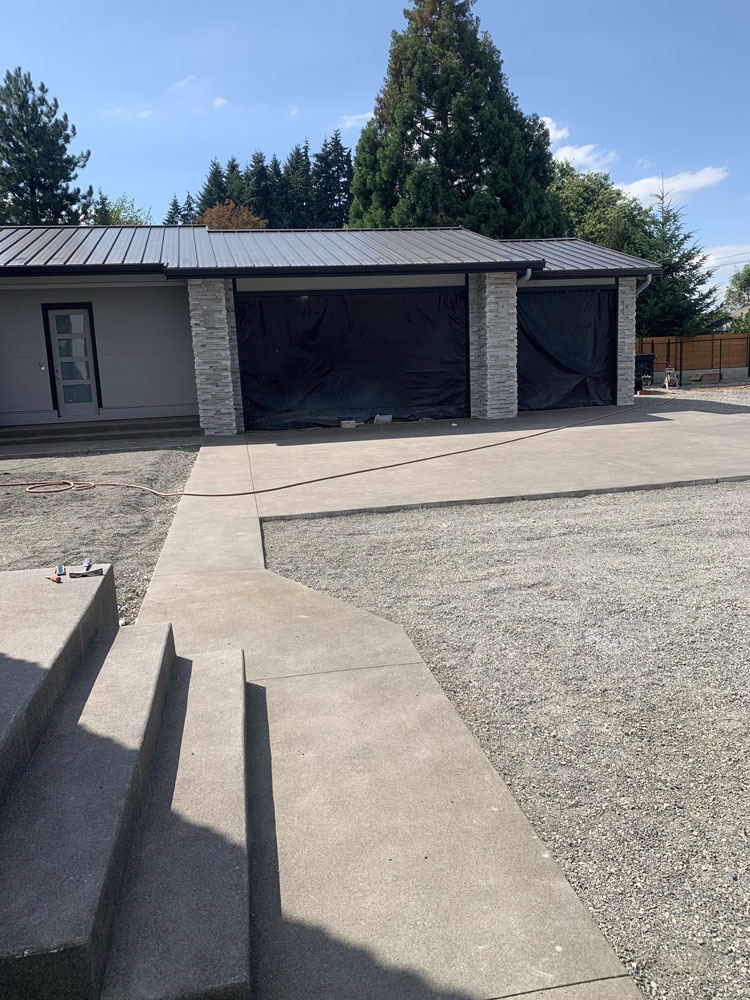Introduction
Building a new home is one of life's most rewarding experiences, but it can also be one of the most expensive. Among the many components that contribute to a home’s overall construction costs, masonry work is often a major player. Whether you're planning to build a charming brick cottage or a sturdy stone house, understanding the costs involved with masonry work in new homes is crucial. In this article, we’ll delve into the nitty-gritty of masonry costs, explore various types of masonry, and help you figure out how to choose the right masonry contractor for your project.
What is Masonry Work?
Masonry work involves using materials such as bricks, stones, concrete blocks, and mortar to construct walls, foundations, and other structural elements. It's not just about stacking bricks; it's about creating durable structures that can withstand the test of time. But what does this mean for your wallet? Let’s break it down.
Understanding the Costs Involved with Masonry Work in New Homes
When it comes to understanding the costs involved with masonry work in new homes, several factors come into play. This includes labor costs, material costs, design complexity, and regional differences. Here’s a closer look at each factor:
1. Labor Costs
Labor is often the most significant cost associated with masonry work. Skilled masons charge anywhere from $20 to $80 per hour depending on their experience and location. The complexity of your project may require a team of masons or even specialized contractors who can significantly increase labor expenses.
Table: Labor Cost Estimates by Region
| Region | Estimated Hourly Rate | |-----------------|-----------------------| | Northeast | $65 - $80 | | Midwest | $40 - $60 | | South | $30 - $50 | | West | $50 - $70 |
2. Material Costs
The type of material you choose has an enormous impact on total expenses. For example:
- Bricks: Typically range from $0.50 to $3 per brick. Concrete Blocks: Generally cost between $1 and $5 each. Natural Stone: Can run anywhere from $5 to over $50 per square foot.
It’s essential to balance aesthetic desires and budget constraints when selecting materials.
3. Design Complexity
Are you going for a simple wall structure or an intricate design? The more complex your design—think arches or intricate patterns—the higher your costs will be due to increased labor requirements and possibly specialized materials.
4. Regional Differences
Construction costs can vary dramatically based on geographical location due to market demand and availability of skilled labor. For instance, urban areas typically see higher rates compared to rural locations.
Types of Masonry Work
Understanding the different types of masonry work can help you better estimate your costs.
1. Brick Masonry
Brickwork offers durability and aesthetic appeal but requires precise craftsmanship which can drive up labor prices.
2. Block Masonry
Concrete blocks are often less expensive than bricks but may not offer the same level of finish quality.

3. Stone Masonry
Natural stone adds elegance but comes at a premium price point due to both material costs and specialized labor needs.
How to Choose a Masonry Contractor
Choosing the right masonry contractor isn’t just about picking someone who quotes you the lowest price; it’s about finding an experienced professional who understands local codes and regulations while delivering high-quality workmanship.
1. Check Credentials
Before hiring any contractor, check their licenses and insurance coverage to ensure they’re qualified for the job.
2. Ask for References
A good contractor should have no problem providing references from previous clients who were satisfied with their work.
3. Get Multiple Quotes
Don’t settle for the first quote you receive—get at least three estimates so you can compare pricing styles and services offered.
FAQs About Masonry Work in New Homes
Q1: How much does masonry work typically cost?
A1: The cost varies widely based on materials used, labor rates in your area, and project complexity but generally best masonry contractor Silverton ranges from $10 to $30 per square foot for basic installations.
Q2: Can I do my own masonry work?
A2: While DIY projects can save money upfront, improper installation can lead to costly repairs down the line; hiring a professional often ensures quality results.
Q3: What’s included in a typical masonry contract?
A3: A standard contract should detail project scope, material specifications, timelines, payment schedules, and warranties on workmanship or materials used.
Q4: How long does masonry work take?
A4: Depending upon project size and weather conditions, small jobs might take days while larger projects could extend over weeks or months.
Q5: Are there ongoing maintenance costs associated with masonry?
A5: Yes! Regular inspections for cracks or wear are necessary—especially in areas prone to extreme weather conditions—to maintain structural integrity over time.
Q6: Do I need permits for masonry work?
A6: Most municipalities require permits for structural changes; always check local regulations before starting any construction project!
Conclusion
Understanding the costs involved with masonry work in new homes is essential for budgeting effectively during construction projects. From labor expenses to material choices—each decision impacts your overall investment significantly! So if you're considering building or renovating your home anytime soon—take these insights into account!
Remember that hiring an experienced masonry contractor can make all the difference between a smooth construction process and endless headaches down the line! With careful planning and research into materials available as well as local regulations—you'll be well-equipped for success!
This comprehensive exploration provides insight into various aspects of masonry costs while emphasizing informed decision-making regarding contractors tailored specifically toward new home constructions!